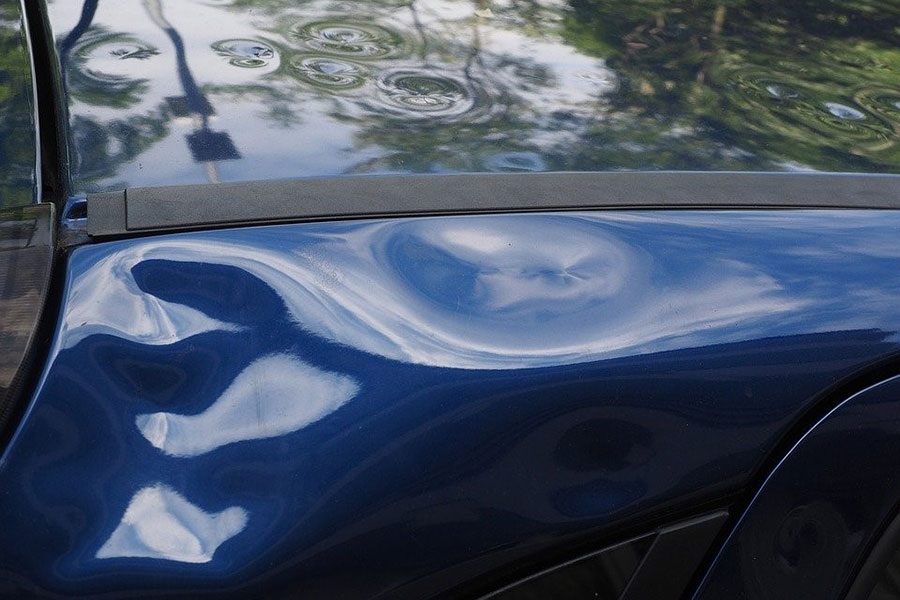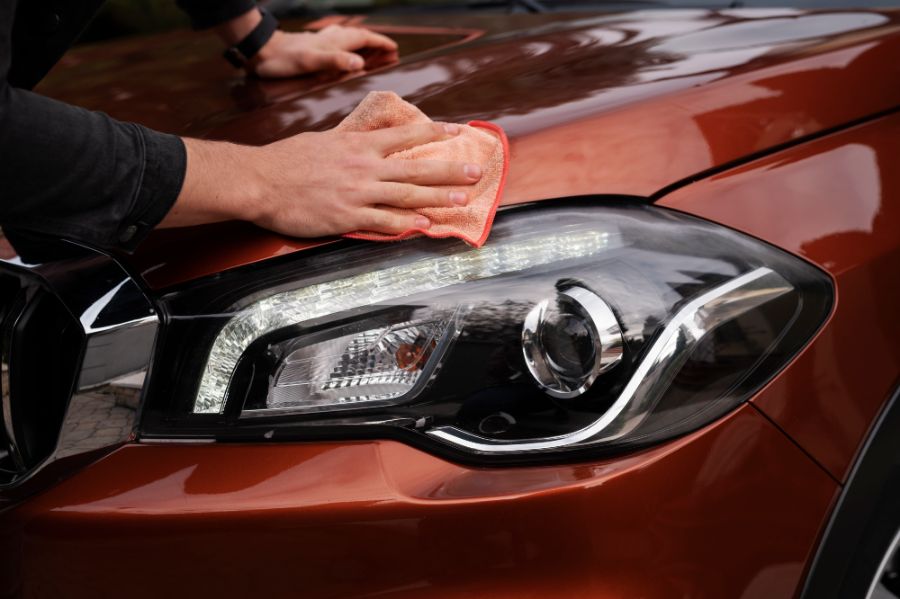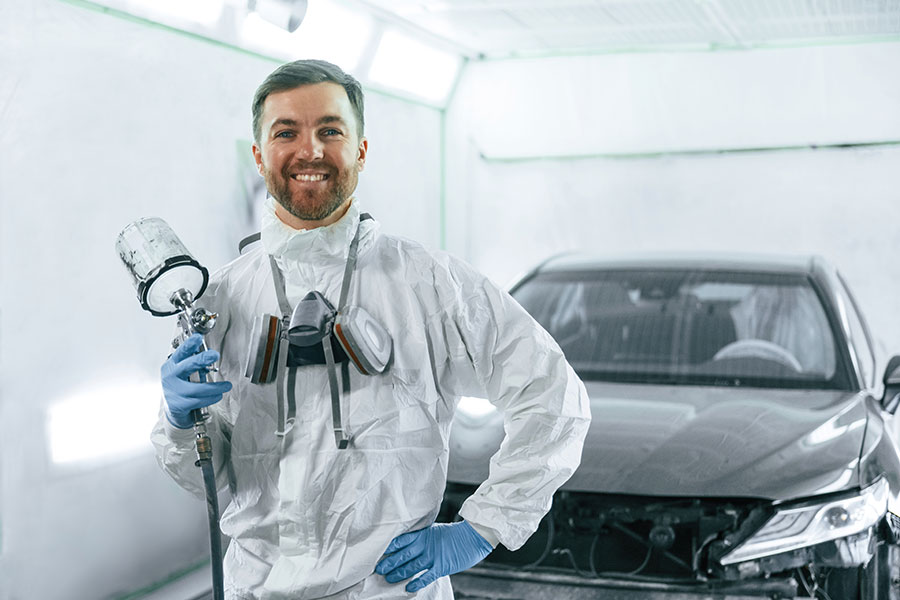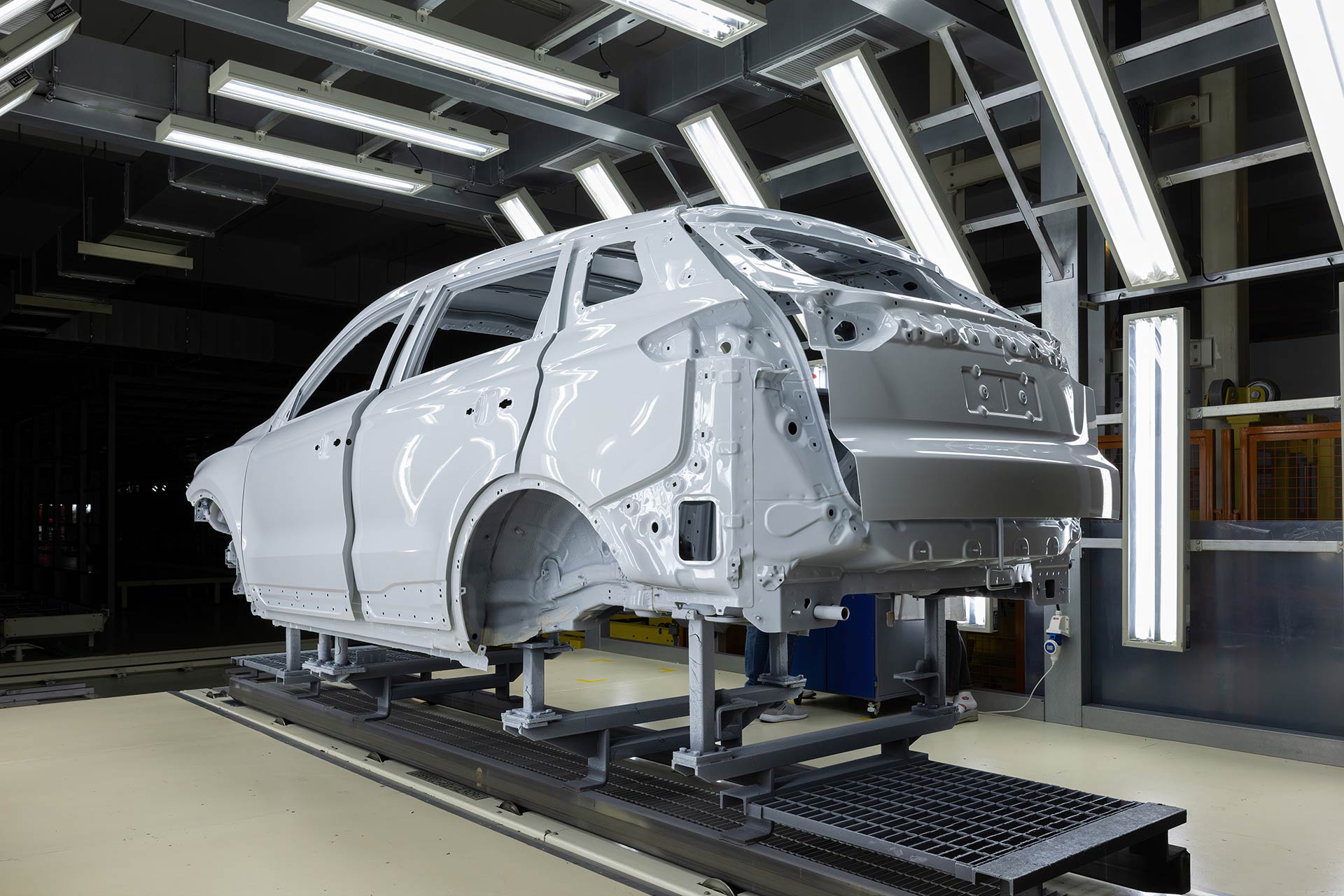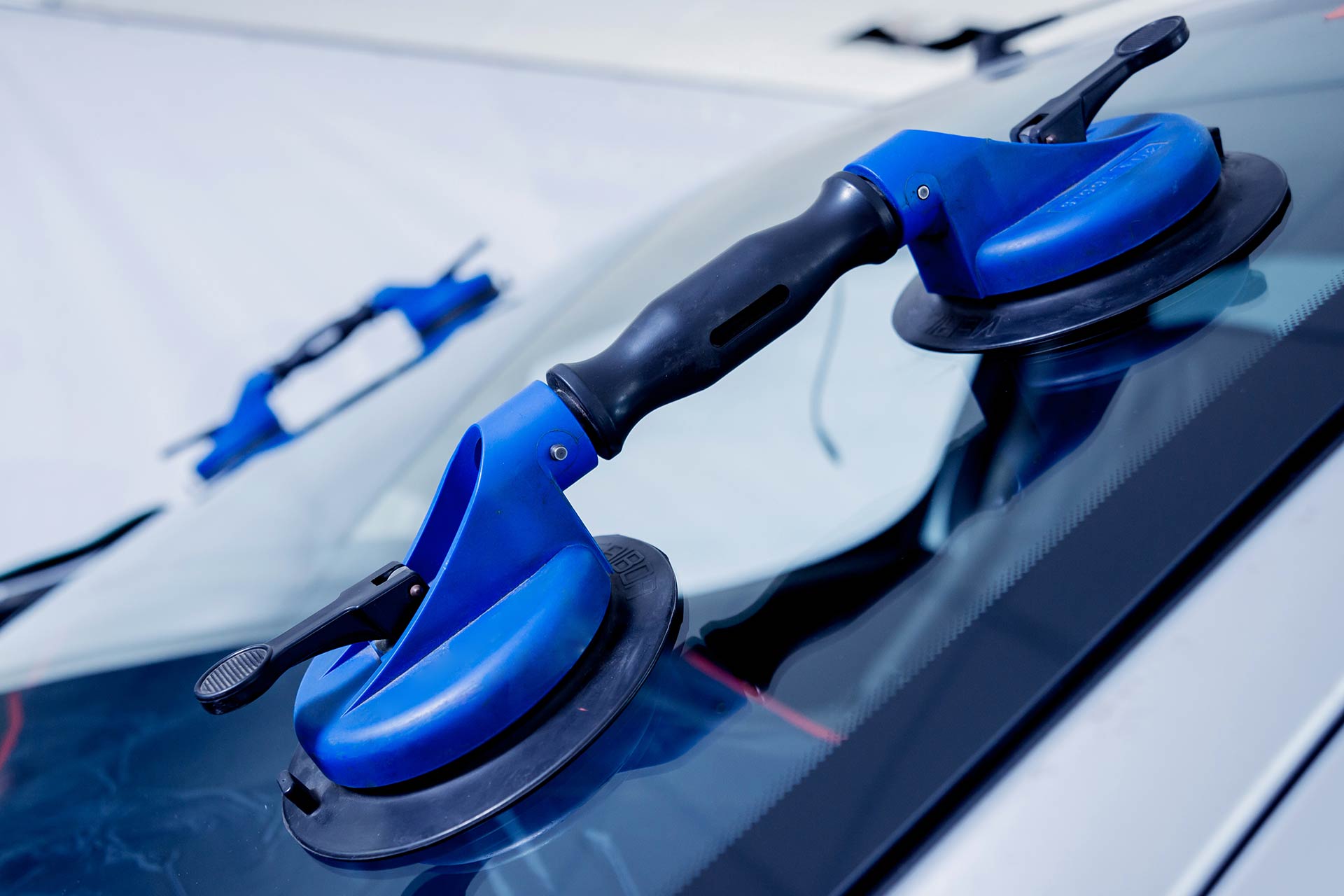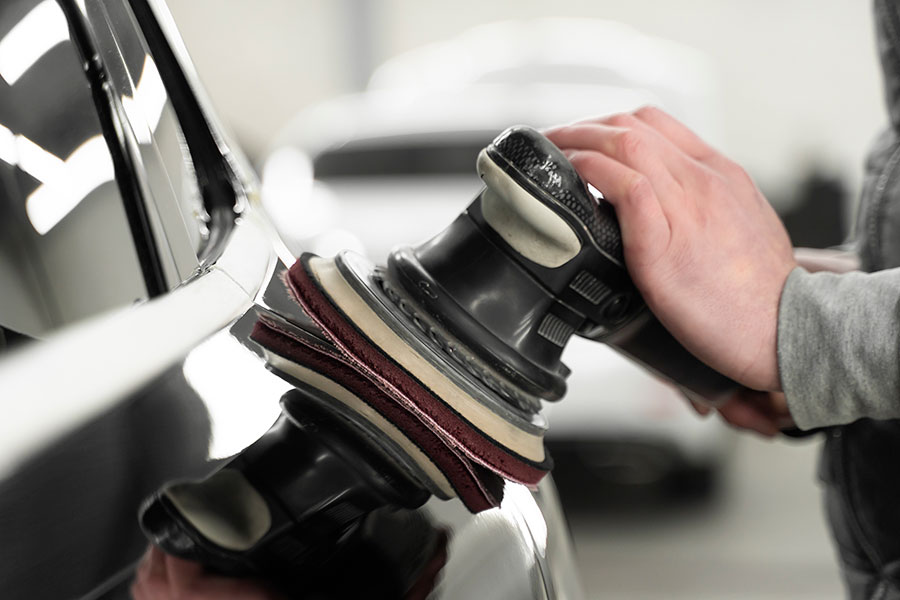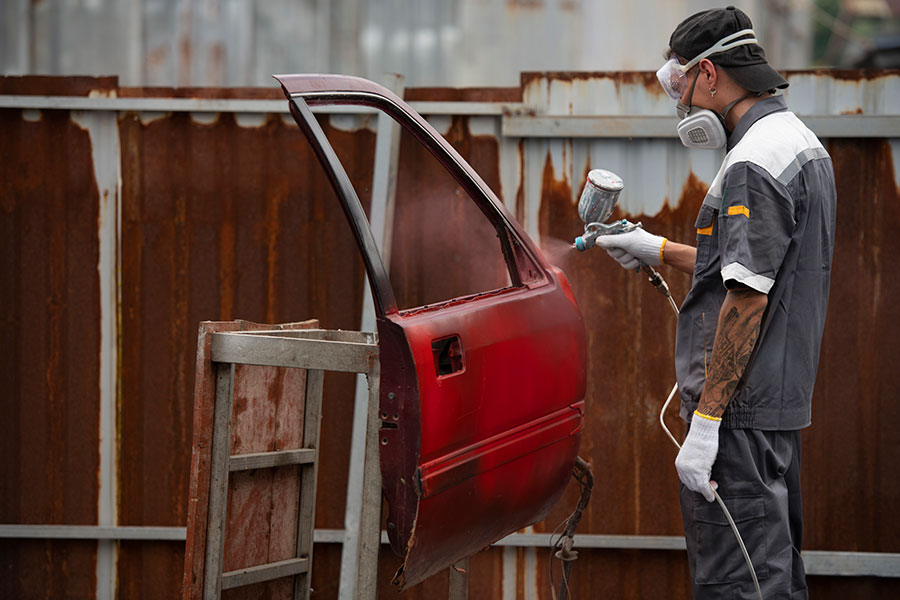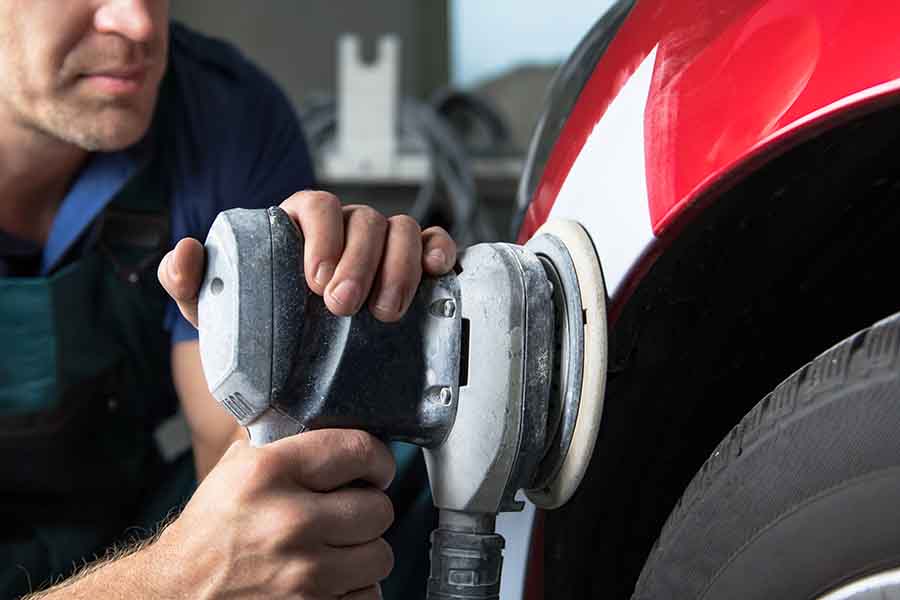Dents and dings on your car can be a real eyesore, contrasting sharply with the sleek, smooth lines that define its beauty. While it might seem like a minor issue, leaving these imperfections unattended can lead to bigger problems down the road. car dent repair is essential, not just for maintaining your vehicle's aesthetic appeal, but also for preserving its value. With today's advancements in auto repair technology, fixing those pesky dents has become more accessible and efficient than ever. Whether it's a small ding from a shopping cart or a larger dent from an unexpected bump, understanding the ins and outs of car dent repair can save you time and money, ensuring your ride looks as good as new.
Understanding Car Dent Repair
Dent Causes
Car dents can happen easily. A stray shopping cart, a minor fender bender, or hail can leave marks on your vehicle. Understanding the common causes helps owners prevent future damage.
Most dents occur in parking lots. Cars parked too close together get hit by doors or bumped by carts. On roads, small collisions are often to blame. Weather plays a role too. Hail storms can cause multiple dents across a car's surface.
Dent Types
There are several types of dents, each with its own repair needs. Round dents, creases, and hail damage are common. They vary in complexity.
Round dents often result from objects like balls or rocks hitting the car. They're usually simpler to fix. Creases require more effort due to their shape. Hail damage can cover large areas and might need extensive repairs.
Damage Assessment
Before fixing a dent, assessing the damage is crucial. This step determines the best repair method. Not all dents are the same, and some might hide bigger issues.
A professional inspection identifies the dent type and assesses the extent of damage. Technicians look for paint damage, cracks, and whether the dent has affected deeper parts of the car. This thorough check ensures repairs last and restores the car's appearance.
Repair Methods
Several techniques exist for repairing dents. Paintless Dent Repair (PDR) is popular for minor, shallow dents. It involves pushing or pulling the dent out without damaging the paint.
For larger or more complex dents, traditional bodywork might be necessary. This process can include filling, sanding, and repainting affected areas. The choice between PDR and traditional methods depends on the dent's size, depth, and location.
Choosing the right repair method is key to a successful fix. Experts recommend consulting with a professional to decide the best approach for your car.
Benefits of Professional Dent Removal
Original Paint
Professional dent removal services take great care in preserving a car's original paintwork. Unlike some DIY methods that might damage the paint or finish, experts use techniques that maintain the integrity of the original paint. This is crucial because the original paint contributes significantly to a car's appearance and durability.
They employ specialized tools to gently massage the dents from behind the car's paneling. This process ensures that the paint does not crack or chip off, keeping the vehicle looking as good as new.
Resale Value
Another key benefit of professional dent removal is the positive impact it has on a vehicle's resale value. Cars with their original paintwork intact and free from dents and scratches are more appealing to buyers. This means they can fetch a higher price in the market.
By investing in professional dent removal, car owners can ensure their vehicle remains attractive to potential buyers. It's a smart move for those considering selling their car in the future.
Time and Cost Efficiency
Opting for professional dent removal services also offers significant time and cost efficiency over attempting DIY repairs. Professionals have the experience and tools necessary to fix dents quickly and effectively.
DIY methods often require purchasing special tools and spending hours trying to fix a dent, with no guarantee of success. In contrast, professionals can often complete dent repairs in less time, allowing car owners to get back on the road sooner.
Moreover, choosing a professional service can save money in the long run. Incorrect DIY repairs can lead to further damage, requiring more extensive and expensive fixes later on.
Exploring Paintless Dent Removal Techniques
PDR Process
Paintless Dent Removal (PDR) stands as a revolution in car maintenance, especially for those minor dings and dents that don't break the paint surface. This technique involves using specialized tools to gently push or pull the dent from the inside of the panel, restoring the metal to its original form without needing filler or paint.
Technicians often access the dent from the backside of the panel, carefully working the metal back into place. It's a delicate process that requires patience and precision. Not all dents are suitable for PDR; it works best on small to medium-sized dents where the paint has not been cracked or broken.
Environmental Benefits
One of the standout features of PDR is its minimal environmental impact. Unlike traditional dent repair methods, PDR skips over the need for toxic fillers, sanding, and paint. This means no harmful chemicals are released into the environment during the repair process.
By avoiding these materials, PDR also preserves your car's original factory paint job. This is not only better for the planet but can help maintain your vehicle's value over time.
Skill Required
PDR is not something just anyone can do—it requires a high level of skill and years of experience. Technicians must have a deep understanding of car bodywork and be able to read the metal like a map. They use this knowledge to apply just the right amount of pressure in exactly the right places.
The skill involved means choosing a reputable technician is crucial. A poorly done PDR job can actually worsen the damage, leading to costly repairs down the line.
Choosing the Right Dent Repair Service
Certifications Matter
When searching for a dent repair service, it's crucial to check their certifications. Certified technicians have undergone rigorous training and testing to ensure they meet high standards. Look for certifications from reputable organizations in the auto repair industry. These credentials signal that the service is competent in handling various dent repair tasks, including paintless dent removal.
Certified services often update their techniques and tools to stay ahead. This means they can handle your car's dents more efficiently and safely.
Read Reviews
Reviews from previous customers are invaluable. They provide insight into the quality of service and customer satisfaction. Search for reviews on multiple platforms to get a balanced view. Pay attention to comments about the service's effectiveness, turnaround time, and how well they treated the customer's vehicle.
Positive reviews often highlight a company’s reliability and skill in dent repair. Negative reviews, on the other hand, can alert you to potential issues.
Warranty Offerings
A trustworthy dent repair service stands behind their work with a warranty. A warranty assures you that if something goes wrong after the repair, the service will address it at no extra cost. Ask about the length of the warranty and what it covers before making your choice.
Services offering long-term warranties demonstrate confidence in their workmanship and materials used.
Specialization is Key
Not all dent repairs are created equal. Some dents may require paintless dent removal techniques, while others might need more traditional methods. Choose a service that specializes in the type of repair your car needs.
Specialized services have the right tools and expertise to fix specific types of dents effectively. This ensures your car gets the best possible treatment.
Quotes and Assessments
Before settling on a service, consult multiple providers for quotes and assessments. This will give you an idea of the cost and scope of the repair needed. Comparing quotes helps ensure you're getting fair pricing and value for your money.
Remember, the cheapest option isn't always the best choice. Consider the quality of service and warranty offerings as well.
DIY vs Professional Dent Repair
DIY Risks
DIY dent repair can seem like a cost-effective solution, but it comes with risks. Without proper tools or knowledge, you might worsen the damage. It's crucial to know that not all dents are the same.
Small, superficial dents might be manageable at home. However, attempting to fix deep or sharp dents can lead to cracked paint or further deformation of the metal. This mistake increases repair costs significantly.
Professional Precision
Professional dent repair services offer precision and expertise. Technicians use specialized tools to gently coax the metal back into place. They ensure the paint remains intact, preserving your car's value and appearance.
Professionals also have the skills to tackle complex dents on curved surfaces or near edges. These areas are often challenging for DIY methods. The outcome is usually seamless, with no trace of the original damage.
DIY Tools
For those considering DIY, understanding the required tools is essential. Basic kits include suction cups and glue-based pullers. Yet, effective use demands practice and skill.
High-quality results depend on selecting the right tool for the dent size and location. Misuse can easily strip paint or leave unsightly marks. Thus, investing in these tools only makes sense if you're committed to learning proper techniques.
Skills vs Consultation
DIY dent repair requires patience and a steady hand. Watching tutorials can help, but there's no substitute for experience. If you're new to car maintenance, starting with minor dents is wise.
However, for significant damage, consulting a professional is best. They assess the extent of the damage accurately and recommend the most appropriate repair method. This approach saves time and money in the long run by avoiding costly mistakes.
Preventing Future Dents on Your Car
Parking Strategies
Parking carefully is key to avoiding unwanted dents. Look for spots away from heavy traffic. This reduces the risk of your car being hit by passing vehicles or shopping carts.
Also, try to park in larger spaces. Tight spots increase the chance of someone bumping into your car when opening their doors. If possible, choose end spots in a parking lot. They usually offer more room on one side.
Driving Habits
Adopt defensive driving techniques. Keep a safe distance from the vehicle in front of you. This gives you more time to react if they stop suddenly and prevents rear-end collisions.
Be extra cautious in bad weather. Slippery roads can lead to accidents that might dent your car. Always adjust your speed according to the conditions.
Protective Accessories
Invest in protective gear for your car. Bumper guards can shield the front and rear of your vehicle from minor impacts. Door edge guards prevent chips and dents when you or someone else opens the car door.
Consider using a car cover if you park outdoors often. It protects against hail, falling branches, and other potential hazards.
Regular Maintenance
Schedule regular maintenance checks for your car. A professional can spot issues like rust or weak spots in the bodywork. These areas are more likely to dent, so it's best to address them early.
Inspect your car regularly, especially after long trips or extreme weather events. Catching small dents early can prevent bigger problems down the line.
Solutions for Businesses and Dealerships
Fleet Maintenance
Businesses with a fleet of vehicles know the importance of keeping them in top shape. Having a dedicated dent repair provider ensures that cars are always presentable. This is crucial for maintaining a professional image.
Regular maintenance helps avoid larger issues down the line. It keeps vehicles looking their best, which is vital for businesses relying on transportation. A reliable dent repair service can quickly fix minor damages, saving time and money.
Sales Impact
For dealerships, the appearance of their inventory directly affects sales. Quick and efficient dent repair can significantly boost vehicle turnover. Cars in pristine condition attract more buyers and sell faster.
This speed in addressing repairs enhances customer trust. It shows commitment to quality. Dealerships benefit from higher satisfaction rates and repeat business. The first impression matters, making fast dent repair services invaluable.
Cost Savings
Specialized service packages offer significant cost savings for businesses and dealerships. These contracts can include routine check-ups and repairs at a lower rate than one-off services.
Bulk deals or long-term agreements ensure priority service. They often come with perks like quicker turnaround times or discounted rates for multiple vehicles. Such arrangements make financial sense for maintaining a large fleet or dealership inventory.
Joining the Professional Dent Repair Industry
Training Paths
Aspiring dent repair technicians have various training paths to choose from. Many start with vocational schools that offer specialized programs in auto body repair. These programs typically cover the basics of dent repair, paint matching, and the use of modern tools and equipment.
Some opt for apprenticeships, working closely with experienced technicians. This hands-on approach provides valuable real-world experience. Apprentices learn not just about repairing dents but also about customer service and business operations.
Certification
Earning certification is a crucial step for those serious about their career in dent repair. Organizations like the National Institute for Automotive Service Excellence (ASE) offer certifications that validate a technician’s skills and knowledge. To get certified, technicians must pass exams that test their expertise in various aspects of dent repair.
Certifications need regular renewal. This ensures technicians stay updated with the latest techniques and technologies. It highlights the importance of continuous learning in this field.
New Technologies
The dent repair industry is evolving rapidly, thanks to advances in technology. Techniques such as Paintless Dent Repair (PDR) require less time and no repainting. Learning these new methods can set a technician apart from competitors.
Staying abreast of these innovations is vital. It allows technicians to offer services that are not only more efficient but also cost-effective. This adaptability can significantly enhance a technician's value in the market.
Career Opportunities
The career opportunities within the dent repair sector are vast. Technicians can work in auto repair shops, dealerships, or for manufacturers. Some even specialize in luxury or vintage cars, which often require a higher level of skill and attention to detail.
There is also significant potential for entrepreneurship. Experienced technicians may decide to start their own dent repair businesses. This path offers more freedom and control but also requires a good understanding of business management and marketing.
Final Remarks
Car dent repair doesn't have to be a headache. With the right knowledge and choices, like opting for professional services or exploring paintless techniques, you can keep your ride looking sharp. Choosing between DIY and professional help depends on your skills and the dent's complexity. Preventing future dents and understanding solutions for businesses show that care extends beyond repair. If you're passionate, joining the industry could be your next big move. Whether it's for personal satisfaction or maintaining your car's value, taking action against dents is worth it. Ready to tackle those unsightly dents or elevate your car care game? Start exploring your options today and drive with pride tomorrow.
Frequently Asked Questions
What is car dent repair?
Car dent repair involves restoring a vehicle's body to its original condition by removing dents, which can range from small dings to larger indentations.
Why should I opt for professional dent removal?
Professional dent removal ensures that your car is restored to its original state without compromising its paint job or structural integrity, using specialized tools and techniques.
Can paintless dent removal be used for all types of dents?
Paintless dent removal is effective for many types of dents, especially those where the paint has not been cracked or chipped. However, it's not suitable for large or sharp dents with damaged paint.
How do I choose the right dent repair service?
Select a service with certified technicians, positive reviews, and a guarantee on their work. Experience and specialization in dent repair are also crucial factors.
Is DIY dent repair advisable compared to professional services?
While DIY methods can be cost-effective for minor dents, professional services ensure a higher quality repair, especially for complex or larger dents, without risking further damage.
How can I prevent future dents on my car?
Regular maintenance, cautious driving, using protective covers, and parking away from heavy traffic areas can significantly reduce the risk of dents.
Are there specialized dent repair solutions for businesses?
Yes, many services offer tailored solutions for businesses and dealerships, including fleet management and maintenance plans designed to keep vehicles in pristine condition.
